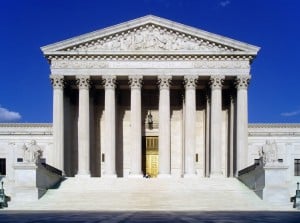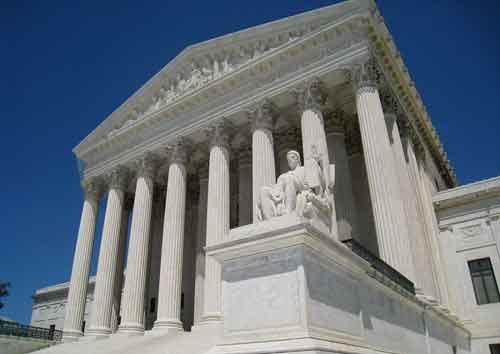
The U.S. Supreme Court has upheld a ban by the state of Michigan on the use of race as a factor in considering applicants for state colleges and universities.
By a vote of six to two, the Supreme Court upheld the right of Michigan voters to prohibit public colleges and universities from taking race into account in their admissions decisions.
Michigan voters approved an amendment to their state constitution in 2006 barring race considerations as a factor in student admissions.
Affirmative action programs have long sought to help racial and ethnic minorities compete and gain acceptance to U.S. colleges and universities. But over the decades they have also been the subject of fierce political debate.
Vanderbilt University law professor Suzanna Sherry says the initial legal fallout from the decision may be limited since the high court was not focused on the whether racial preferences may be valid, but on the right of voters to have their voices heard on the issue.
“What the court held is that the voters in Michigan are allowed to decide whether they want affirmative action or not, and that is really not a ruling on affirmative action. It is a case about whether affirmative action is required and the answer is no, it is not required. The people of Michigan can decide not to engage in it,” said Sherry.
The decision drew a sharp dissent from one of the two Supreme Court justices in the minority on the case, Justice Sonia Sotomayor. She said judges should confront the racial inequality that exists in the United States, and not just sit back and wish it away.
The American Civil Liberties Union issued a statement criticizing the Supreme Court ruling, saying the Michigan law “unfairly” keeps students from asking universities to consider race as one factor in admissions.
But a black conservative group known as Project 21 said the decision moves the country closer to the colorblind principles advocated by the late civil rights leader Martin Luther King, Jr.
California and Washington State have voter-approved laws banning affirmative action in education admissions and a few other states have also adopted laws or executive orders barring race as a consideration.
Bisi Okubadejo is an attorney in Maryland who represents colleges and universities in civil rights cases involving affirmative action. She predicts a limited legal impact from the Supreme Court decision.
“It is likely that this action by the Supreme Court will bolster other groups that continue to file similar suits. It is not representing a step forward with regard to the use of race, but taken in context I think that any negative effects on diversity and the use of race on campus has already occurred in the states where voters have spoken at the polls,” said Okubadejo.
Vanderbilt expert Sherry says court decisions over the years have chipped away at the scope of affirmative action programs and she expects continued scrutiny at state and federal levels in the years to come.
“The constitutionality of affirmative action is much more precarious than it was 30 years ago. And I would not be surprised if the next time the court focuses on affirmative action, I would not be surprised if it strikes them down,” she said.
Supporters of affirmative action programs note enrollment among African-American and Hispanic students has dropped at the University of Michigan since the ban took effect.






